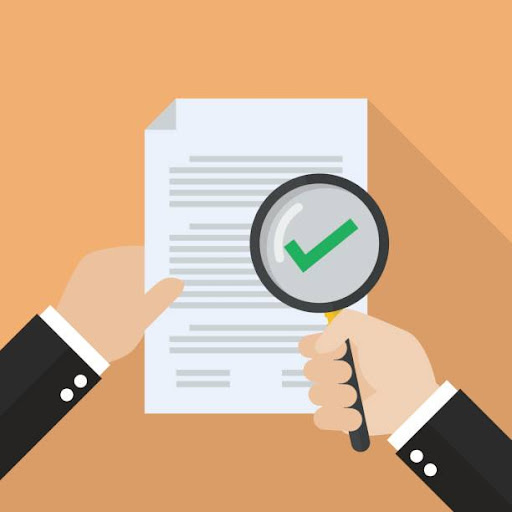
Hand holding magnifying glass with document paper approved. verification concept
The estimated worth of the travel industry by the end of 2023 is valued at USD 2.29 trillion. According to the Bureau of Transportation Statistics, everyday about 1.1 billion car trips are taken by Americans. For air travel, the average daily numbe of passenger volume crosses 2 million. Maintenance of such a huge number of people traveling inter and intra- state and nationally is an important task that is primarily based on checking IDs. This makes effective document verification systems a necessity for the travel industry.
Online document verification system – Exploring the needs of the travel industry
Document verification systems allow authorities to understand the people traveling cross country as well as internationally. Through these verifications, states can collect important data about those traveling. Using this data, we can build better reports, and thus, offer better services to the public. This also helps drive better commercial services.
While better data analytics is absolutely and most certainly of great importance, document verification is also crucial to build better systems for security. Keeping a check on the influx of people can help inform about increased travel from a certain flagged region or to sensitive regions. Such situations raise important red flags. We can deal with these later adequately and as needed.
Another way document verification is helpful for security is through simply knowing the ID of the ones traveling. It allows authorities to identify black-listed individuals or those with a specific travel history. Testing for these identifiers is difficult through traditional ID verification systems. Online document verification methods make the process simple while also offering greater accuracy and speed. The automation aspect of digital document verification systems is another additional plus point.
Travel and document attestation in the post-COVID world
In the post-pandemic world, the list of required essential documents to prove identity, approval, health status, and financial stability is at its peak. The authorities are becoming increasingly stringent with regard to keeping an eye on individuals. This is increasing the pressure on individuals. However, at the same time, it is also building up the need of governments for smarter and more technologically advanced document verification systems.
The COVID-19 passport
Before the pandemic, travel document verifications primarily required two to three types of documents, at least. These were state photo ID cards or passports, visas, ESTAs, and in some cases entry cards or approval tickets to certain limited locations. Today, we have another one on the list of verification documents as well. This is the COVID-19 vaccination certification card, also holding the alternative name of the COVID passport.
Globally, many countries have made it a requirement to only allow vaccinated individuals. Moreover, many are working to figure out solutions for better post-COVID-19 document verification. This can include novel documents that combine the traditional passport with a health certification system. Today, we have moved past the peak of the COVID pandemic, however, many more global pandemics are still expected to come owing to climate shifts, global travel, urbanization, etc. Through similar health passports, we can improve preparedness for such events.
Document verification for approval to travel
Besides this guaranteed addition of COVID passports, it is also expected the list of documentation required for approval is going to increase. This includes documents such as employment proofs, utility bills, tax details, etc. This is due to the global increase in crime rates as well as the need for security. Improved document verification is becoming an absolute need of the global travel industry today.
How digital identity and document verification systems can help
The list of documents required for the management of travel is constantly increasing. The same goes for the need to increase strict security measures. The two counter one another.
Reduction in documents or faster processing during security checks for document verification can lead to loopholes for criminals leading to an increase in crime.
On the other hand, an increase in strict measures naturally requires authorities to demand increased proof of various characters.
In such cases, digital document verification systems allow authorities to be as stringent and regulated as they need to be while giving the public improved customer service.
Digital document verification allows for seamless and contactless travel security checks. Today, majority of the airports are using digital verification methods for travel IDs. These services are based on advanced machine learning and neural network-based systems. Through such document attestation methods, we can ensure safer and faster check-ins and check-outs, as well as routine security checks which may be required in specific regions.
To sum up
Document verification is a routine method of security checking at all major travel points globally. From airports to land or marine border control, passports and visas are just the tip of the iceberg of the necessary travel documents.
With an increasing need for security and health concerns, we are seeing increased documentation and attestations required for travel. These formalities are a limitation to the growth of the travel industry which may suffer under such factors. Digital document verification services offer solutions for a better and thriving global travel industry.













